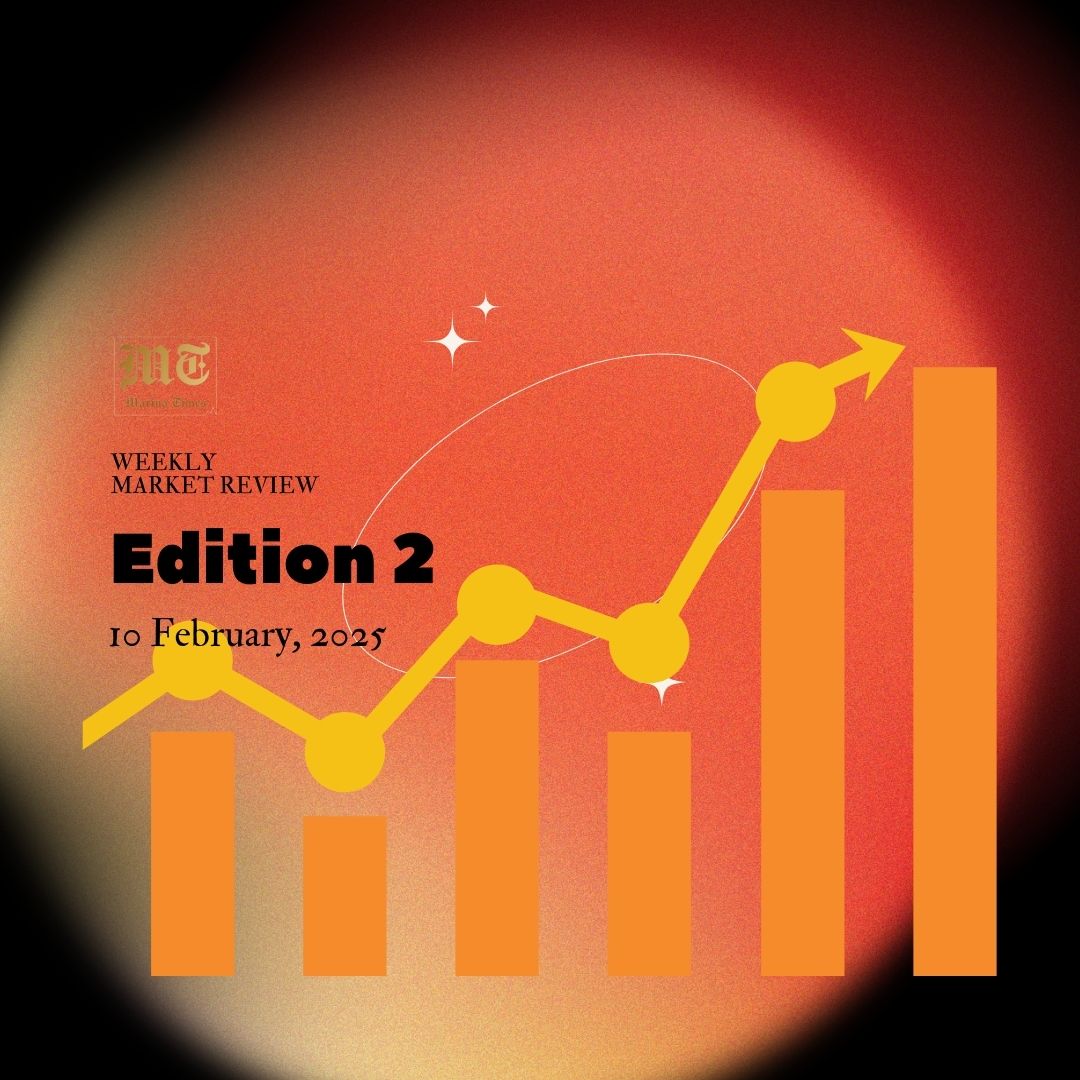

The posture exhibited at the auction last Wednesday indicates a broader trend in the Nigerian fixed-income market, where demand for government securities continues to outpace supply, particularly amid the uncertainty of inflationary developments and revaluation of the Naira. For many investors, the NTB market remains one of the few viable options for relatively low-risk, high-return investments in an uncertain environment.
President Tinubu’s recent announcement of a revised budget of ₦54.2 trillion, from ₦49.7 trillion has gained significant attention. This upward adjustment is indicative of the government’s evolving fiscal strategies in response to changing economic conditions.
In the week under review, the Naira fluctuated between a high of $/₦1,507.00 on Thursday and a low of $/₦1,480.00 on Monday, closing at $/₦1,502.00 on Friday. In the money market, there was a liquidity deficit of approximately ₦315 billion, a sharp contrast to the previous week’s surplus of over ₦720 billion. Consequently, short-term borrowing rates recorded a notable uptick, with the O/N rate rising to 32.75% and OPR to 32.42%, up from 29.57% and 29.24% respectively the previous week.
The Nigerian Treasury Bill (NTB) auction sparked a chain of events across the fixed-income market, with a wave of demand signaled by the wide variance between offer and subscription volumes. The auction had a total of ₦670 billion on offer but the most notable feature was the overwhelming demand for the 364-day tenor, where subscription volume was in excess of ₦3 trillion. Compared to the previous auction held in January, where the DMO sold over ₦750 billion worth of bills despite offering just ₦530 billion, this auction reveals a tightening of issuance, with the DMO only selling exactly the amount on offer. Even though the 91-day and 182-day allotments were reduced, the 364-day tenor compensated with a 24% increase in allotment. The relatively restrained response from the DMO, selling exactly the amount on offer, signals a degree of caution in its approach.
The decision by the DMO to issue ₦670 billion strictly has been construed by some analysts to be a reflection of a strategy to balance the need for short-term funding with the long-term sustainability of Nigeria’s debt profile.
The 91-day and 182-day T-bills have been issued at 18% and 18.5% for six consecutive auctions, while the 364-day tenor has been quite volatile. Although, this auction marked a further decline in yields, the market continued to display a lack of interest at the short end of the curve with lower subscription volumes and stable rates. The 364-day stop rate dropped by 148 basis points at this auction (a total benchmark drop of 230 basis points so far this year).
AUCTION DATE | 05-02-2025 | 05-02-2025 | 05-02-2025 |
ALLOTMENT DATE | 06-02-2025 | 06-02-2025 | 06-02-2025 |
MATURITY DATE | 08-05-2025 | 07-08-2025 | 05-02-2026 |
TENOR | 91-DAY | 182-DAY | 364-DAY |
OFFER (₦) | 50,000,000,000 | 120,000,000,000 | 500,000,000,000 |
SUBSCRIPTION (₦) | 42,367,127,000 | 19,523,337,000 | 3,156,141,653,000 |
ALLOTMENT (₦) | 31,941,827,000 | 18,693,337,000 | 619,364,836,000 |
STOP RATES (%) | 18.0000 | 18.5000 | 20.3200 |
PREVIOUS STOP RATES (%) | 18.0000 | 18.5000 | 21.8000 |
The effect of lower T-Bill yields was felt in the bond space as rates in the secondary market started adjusting downward, notably on auction bonds (2029s, 2031s, and 2035s) even before the close of the NTBs auction on Wednesday. At end of trading on Friday, the 2031 and 2035 maturities had dropped below the 21.5% threshold and are seemed likely to be trending further down. Meanwhile, 2029 maturities closed in the upper 20% yield range.
The Nigerian Naira has recently experienced a notable appreciation against the US Dollar, with significant movement observed in the official and parallel markets. In recent history, the official exchange rate has trended well above $/₦1,500, while the parallel market rate had surged to trade ₦1,700 on several occasions. As of February 2025, the official rate has improved to below $/₦1,500, and the parallel market rate has decreased to below $/₦1,500.
This revaluation of the exchange rate can be attributed to several factors, notably the fact that the Central Bank of Nigeria (CBN) has implemented various monetary policies aimed at stabilizing the Naira and managing foreign exchange reserves. Additionally, fluctuations in global oil prices, which significantly impact Nigeria’s foreign exchange earnings, have influenced the Naira’s value. The appreciation of the Naira against the US Dollar is a positive development for the Nigerian economy, as it can lead to reduced import costs and lower inflation. However, close monitoring remains essential, given that exchange rate movements can be influenced by various domestic and international factors. Maintaining a stable exchange rate is crucial for economic planning and ensuring the sustainability of the Naira’s value in the global market.
Market participants are closely monitoring how the increased 2025 budget will impact financial markets. Many stakeholders fear that a larger budget may widen the fiscal deficit, and lead to increased government borrowing. This could drive yields higher in the short term due to higher debt supply. However, there is also a growing school of thought that the increased budget is a sign of confidence in the government’s ability to manage critical issues. Where inflation is controlled, and revenues improve, it could strengthen market sentiment, although excessive spending could strain the Naira if not matched by foreign exchange reserves.
In addition, the CBN recently introduced new guidelines for Bureau De Change (BDC) operators, marking a milestone in the country’s foreign exchange (FX) market. These guidelines allow licensed BDCs to purchase foreign exchange directly from Authorized Dealers, such as commercial banks, to better meet customer needs. The integration of BDCs into the official FX market aims to enhance Naira stability, although transactions remain capped at $5,000 per quarter per operator, as determined by the CBN. This measure seeks to balance market accessibility with effective oversight.
The increased 2025 budget is likely to affect investment appetite in the near term. In particular, the aggressive dip in bond yields may be substantially reversed considering the potential borrowing plans of the Federal Government looking forward. Perhaps, market participants may soon realize the drop in T-Bill yields is at best tantamount to a broadening of the excessive gap between T-Bill and bond yields and should not necessarily have been followed by a concurrent crash in bond yields!
In the cryptocurrency space, Bitcoin (BTC) and the broader crypto market are expected to reach new highs in the coming days as the Crypto Advisory Council takes steps to boost market confidence. Oil prices are expected to consistently decline barring any significant breach to global peace.